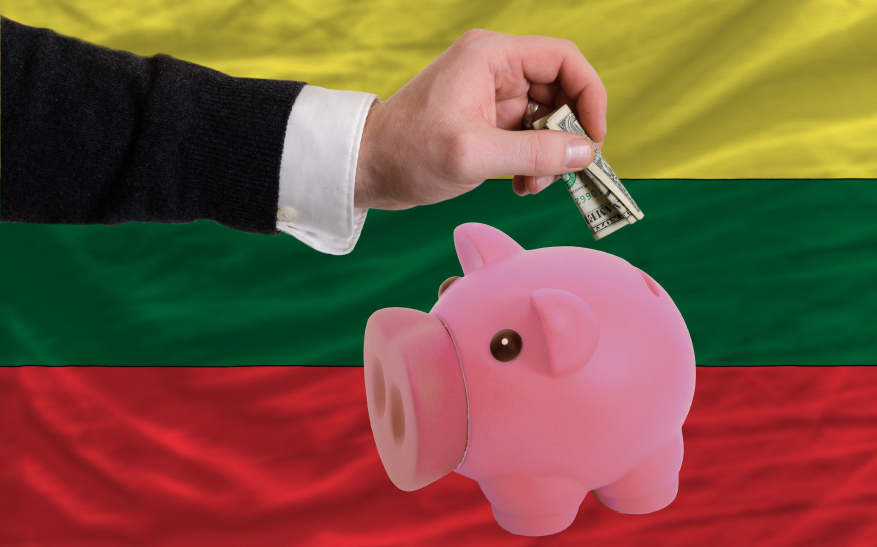Financing your Studies in Lithuania

Cost of your studies
Tuition fees
Lithuanian HEIs set their own fee structures, so there is considerable variation between institutions. Fees vary with the type of programme, the institution and the level. Fees for programmes taught in English at state universities are in the same range as those taught in Lithuanian. There are state-subsidized places at state universities, allocated on the basis of academic achievement. Students who win these places pay no fees. Due to the various kinds of support available just over 50% of students pay no fees.
Fees at state universities vary from 565 to 1,100 € per semester at undergraduate level. Fees at Master’s level range from 1,060 to 1,600 € per semester and at Doctoral level from 3,000 to 4,000 €. Fees at private HEIs are much higher – up to 4,000 € for undergraduate degrees and up to 11,000 € for post-graduate degrees per semester. EU students pay the same fees as Lithuanian students. Non-EU foreign students can expect to pay a higher fee-rate at undergraduate level in state universities, but generally not at Master’s or Doctoral level. Students on exchange programmes do not pay fees.
Cost of living
Total living costs for a student average 380 € a month, although this will vary depending on the type of accommodation chosen and overall life-style. Student dormitories cost 115€ a month but are not always available. Private flats cost 180 to 600 € a month depending on whether they are shared, and their size. Internet and cable television costs are about 9 € a month. Public transport student passes cost around 20 € a month, or much less in some cities. An inexpensive restaurant meal costs around 4 €. A cappuccino is 1.4 € and a beer 1.7 €. A loaf of bread is 0.85 € and a litre of milk 0.8 €. Meat is 5-6 € a kilo and a kilo of cheese is 7 €. A dozen eggs are 1.6 €. Total monthly food costs are estimated at less than 200 €.
Financing your studies
Public support
State support is divided into several categories. Firstly there are study scholarships that pay tuition fees. There are also academic achievement scholarships administered by the various HEIs. Levels of support vary from one institution to another, but the highest amount paid is 300 € a month. Students from poor backgrounds, disabled students and orphans receive a social scholarship of 113 € a month. In addition, students with good academic results in their undergraduate programmes receive a tuition refund. There is a direct income tax refund of up to 15% of the tuition fee paid to parents. Parents with three or more children also receive a child benefit of 15 € a month if the student is under 24.
Scholarships
Most HEIs offer their own scholarships to foreign students. These are administered by the individual HEI. Private and university scholarships available for international students to study abroad can usually be used to study at the appropriate levels in Lithuanian HEIs. Lithuania participates in the European Erasmus Mundus programme for advanced study at Master’s and Doctoral levels.
There is a state-scholarship scheme for students from Belarus, Georgia, Moldova, Ukraine, and foreign citizens of Lithuanian descent. Scholarships pay fees and 377 € a month support. Students from Armenia, Azerbaijan, Kazakhstan, Uzbekistan and China are also eligible. They receive the monthly support payment, but must pay the tuition fees themselves. There is a state-funded programme for those of Lithuanian ancestry to return for the purpose of studying in Lithuania.
Student Loans
There is a state-supported loan system for students to pay their tuition fees and a separate system for support, however only 5% of Lithuanian students use the scheme. Loans are a for a maximum of 1,900 € a year for support and 6,600 € for fees.
Student Jobs
Work permits are required for non-EU students to work in Lithuania. A permit fee of 120 € is charged. However, for work in a university or in a research institute, or for a paid work-placement, no work permit is needed. Non-EU students may also stay for a few months after their studies are over, to look for a job, prepare to enter post-graduate studies or simply for pleasure.
A student can work a maximum of 20 hours a week and remain a full-time student. EU citizens may work freely under the freedom of movement provisions of the European Union and may stay an additional six months after completion of their studies to look for work. Fluency in Lithuanian is required for most jobs but there are also some opportunities to work in English or other European languages.
